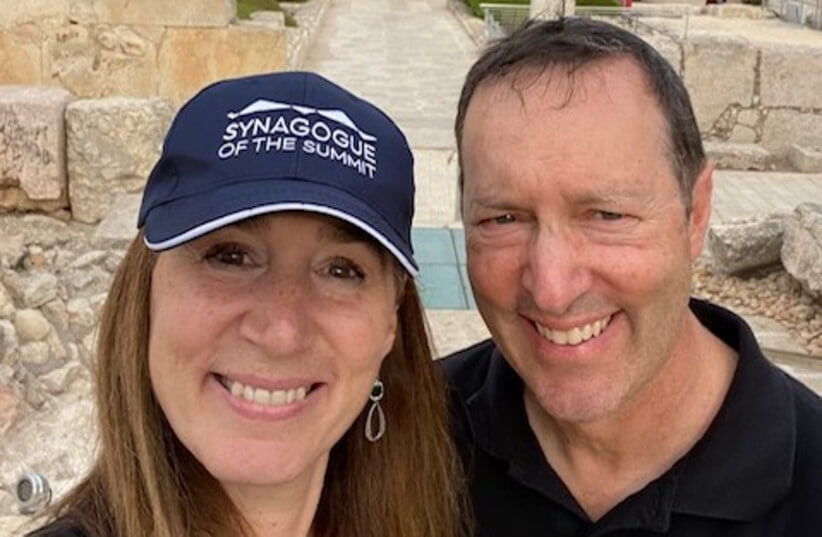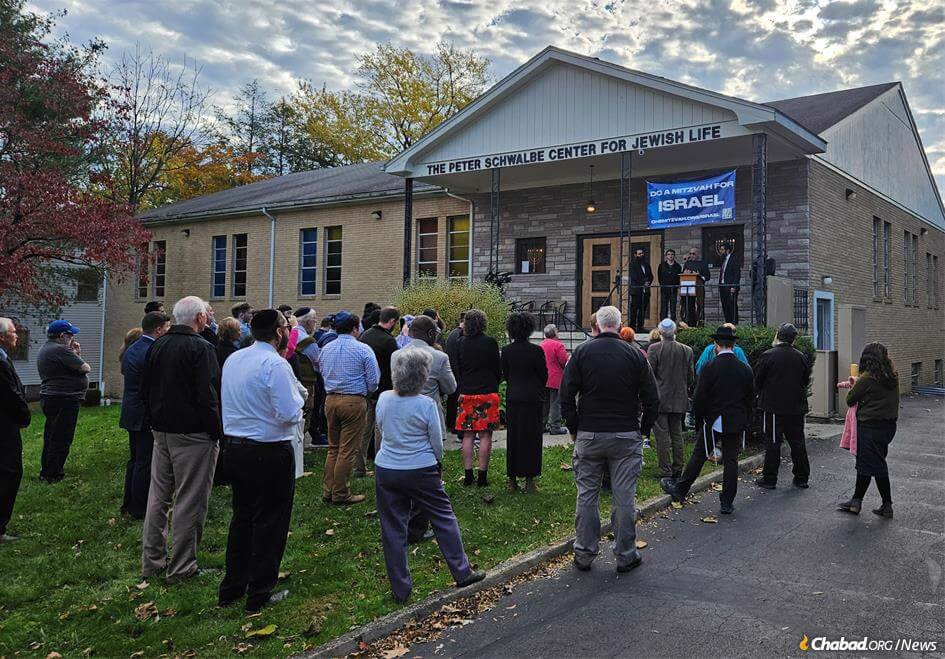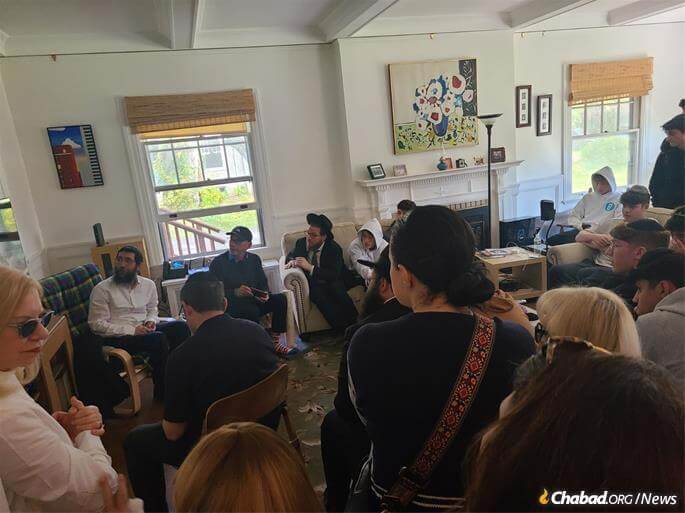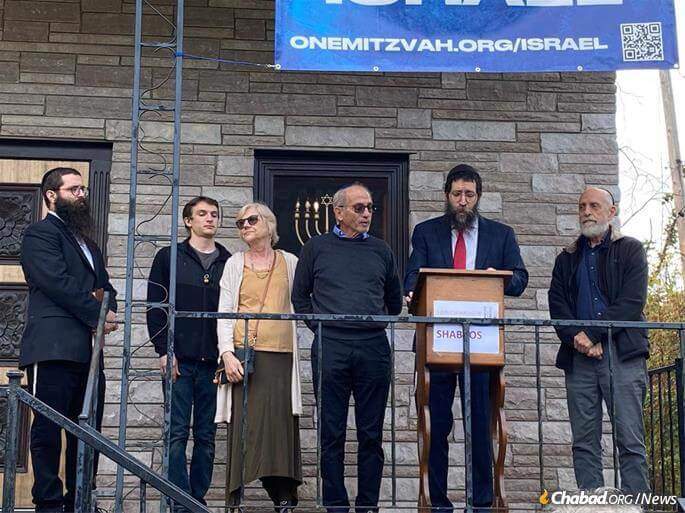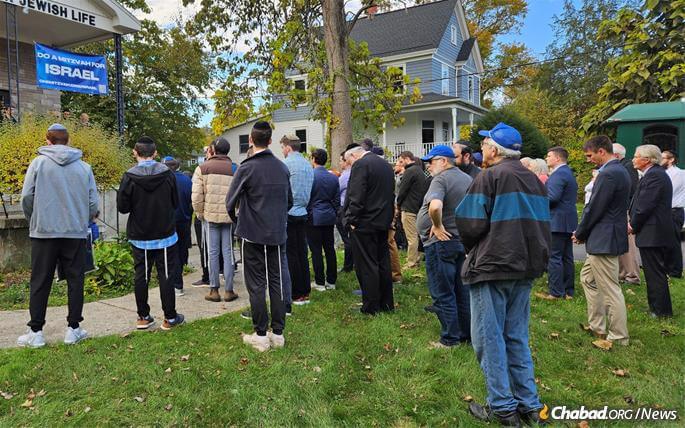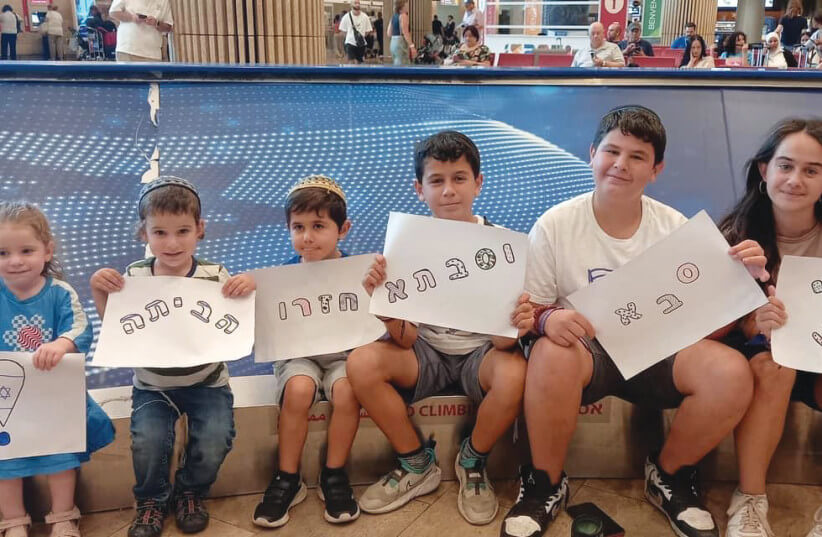Original Article is Posted at Jerusalem Post
The Jerusalem residents, who made aliyah in February, started making a dent in Cincinnati, Ohio. Now they’re trying to do the same in Israel.
When Nellie Neeman-Bochner and Glenn Bochner started dating, they already discussed how they would “make a dent” if they ended up getting married.
The Jerusalem residents, who made aliyah in February, started doing so together in Cincinnati, Ohio, where they hosted a very welcoming minyan in their home for ten years, which Glenn reports “brought Clal Yisrael together.”
The couple has increased the ways they are making a dent in Israel and the world since coming on aliyah nine months ago. And they couldn’t be happier – even as Israel faces the toughest times since Nellie’s father fought and was wounded in the 1948 War of Independence.
Nellie has wanted to realize her dream of aliyah since spending her post-high school gap year in Israel. Her parents were not so crazy about the idea. “I’ve been yearning to come back ever since,” she says.
“From the start, I was open to it,” she recalls. “We [Glenn and I] were clear that it was our life goal and said we would come in five to eight years. We let the minyan know that we were on track to make aliyah in five years. Baruch Hashem, we did.”
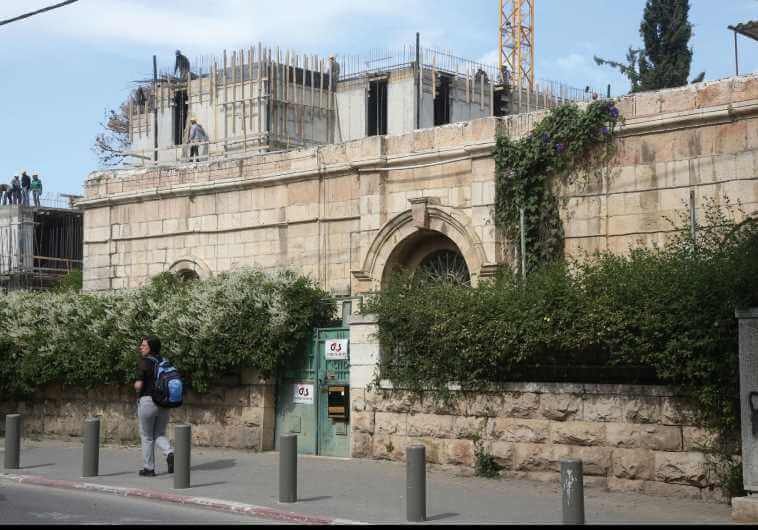
Baka neighborhood in Jerusalem (credit: MARC ISRAEL SELLEM/THE JERUSALEM POST)
The couple was very thoughtful and intentional in their planning. They knew they wanted to live in Jerusalem and spent between two weeks to five months staying in various apartments to get a sense of certain neighborhoods. “We tried different neighborhoods – Sha’arei Hessed, Talpiot, and we are now in Mekor Haim. We are moving to Baka next week,” Glenn notes. “We hope it will be our last,” Nellie offers.
Both agree that each neighborhood has been great and it is difficult to choose, noting that it is an honor and a privilege to be in the holiest city in the world.
Making a dent in Israel
THE BOCHNERS started making their own dent during those visits to the country. Glenn describes their love of “hiking, exploring nature, and driving around the country.” On one trip near the Dead Sea, they were walking in a pine grove and discovered “an unbelievable amount of garbage in piles – like a garbage dump.” They began bagging the garbage and have returned four or five times together and with friends to continue the clean-up operation.
Their trips around the country have an additional benefit for Nellie’s work. The Manhattan-born speech and language therapist, turned thriller and romance writer, and Anglo writers’ group leader (Facebook group, Booklovers of Israel) is the author of the Jon Steadman thriller series. She is working on her fifth thriller, Immortal, which follows Spree, Resurrection, Vengeance, and Duplicity. Nellie’s website, nellieneeman.com, provides more information on her thriller books.
Her books often feature Israel as a backdrop, and one of the main characters, Dr. Terry Lavi, is a geneticist at the Technion-Israel Institute of Technology. “I also have a hidden agenda – it is very important for me to show Israel and Jewish people in a positive light through stories. I hope I am succeeding,” she says.
Nellie published her fourth romantic comedy, Soaring Hearts, which she wrote under the pen name Ellie Hartwood as she does for her Clean Romance books. In addition, she has published eight novellas.
In her spare time, she works with Glenn as a shadchanit through the SawYouAtSinai matchmaking site. “I have been making shidduchim since I was a kid! The first match I made have been married for 34 years.” She praises Glenn for being “good at mentoring singles and speaking about challenges. We are a good team.” While technically, payment is expected by Jewish law, she notes, “We do it for the mitzvah.”
The Bochners regularly open their homes to various cohorts of singles for Shabbat meals. “We pick a target [age group] – 20s to 60s – and invite numerous people who we think will go well together.” Glenn generally poses a question and facilitates a structured conversation. “We try to keep it relaxed,” he notes.
Glenn, who grew up in Albany, New York, and attended the Georgia Institute of Technology, is a mechanical engineer by training and recently retired after 38 years at Procter & Gamble as an engineering manager and “in-house entrepreneur.” He initially thought it might be possible to continue his Procter & Gamble work full time from Israel, but then realized it was not feasible.
“We both realized that being here and living with these holy people is our priority,” he explains. He is currently developing other businesses.
Glenn often explains to friends that he couldn’t be happier with what he describes as the “rhythm of the day,” which “starts with holiness and purposefulness.” He elaborates, “I go to a beautiful minyan, then daf yomi, have some time with my wife, then by mid-afternoon, after I catch up and relax, I work.”
He feels fortunate to have made aliyah when he did. The current situation has provided numerous volunteer opportunities. “There is an unbelievable level of volunteerism. People are tripping over each other to help out and say thank you.” He recently has been involved with Grilling for the IDF, which regularly serves barbecue dinners to soldiers.
In addition, the Bochners joined a small group of volunteers who are managing Am Echad b’Lev Echad – One Nation, One Heart, an organization focused on “celebrating our commonalities and ways to love each other.” The couple says that donations to the organization help secure dri-fit shirts, which contain the inspiring message of pride and unity, for soldiers to wear under their uniforms and provide an opportunity “to unite the Jewish people behind our soldiers.”
The Bochners feel fortunate that their aliyah has gone smoothly. Nellie is fluent in Hebrew, and Glenn continues to make progress and plans to take ulpan soon. “We anticipated the bureaucracy and we have been here many times, so we had a sense of what to anticipate. There have been no major surprises,” he says.
The biggest challenge? Being far away from their three children – aged 25 to 31, who live in Los Angeles, Chicago, and Boston – and from Nellie’s mother. They hope their children will come one day, noting that some are very Zionistic and are actively discussing aliyah.
The Bochners’ aliyah and the potential aliyah of their children are a tremendous tribute to Nellie’s father, who came from Romania and fought for Israel’s independence 75 years ago. They hope their story of Aliyah will help inspire others to make the leap as well.■
NELLIE NEEMAN-BOCHNER, 57, AND GLENN BOCHNER, 61 FROM CINCINNATI TO JERUSALEM, FEBRUARY 2023
